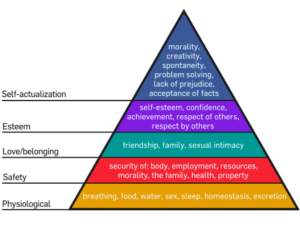In 2002, Review of General Psychology published a list of the 99 most emminent psychologist of the 20th century. Factors they used to rank the list included things such as journal citation frequency, introductory psychology textbook citation frequency, and survey response frequency. And this rank-ordered list is what the journal came up with. The following is a list of the 99 most influential psychologists of the 20th century and their major contribution to the field.
1) BF Skinner
Burrhus Frederic Skinner, better known as BF Skinner, was a man of many talents. Besides being a world-renown psychologist, he was also an inventor, author, and social philosopher. As the most prolific psychologist of the 20th century, his contributions to the field have been abundant. Perhaps the most influential contribution BF Skinner made to the field is his philosophy of radical behaviorism. Skinner also discovered and perpetuated the rate of response as a dependent variable in psychological research and also invented the cumulative recorder to measure rate of responding as part of his highly influential work on schedule of reinforcement.
2) Jean Piaget
Jean Piaget was a psychologist and philosopher (aren’t they all?) from Switzerland who rose to fame from his research and on cognitive development and epistimology. Piaget’s socialogical model of development and model of intellectual development served to lay the groundwork for understanding intellectual development in children and adolescents.

3) Sigmund Freud
Perhaps the most well-known psychologist to those outside of the field, Freud is the founding father of psychoanalysis (the basis of psychotherapy and treatment).
Most famous contribution to psychology:
4) Albert Bandura
5) Leon Festinger
6) Carl Rogers
7) Stanley Schachter
8) Neal Miller
9) Edward Thorndike
10) A. H. Maslow
Most famous contribution to psychology
In a 1943 paper titled A Theory of Human Motivation, Maslow theorized that human basic needs can be categorized in a hierarchy of needs. We later come to know of this hierarchy as the Maslow Hierarchy of Needs.
11) Gordon W. Allport
12) Erik H. Erikson
13) Hans. J. Eysenck
14) William James
15) David C. McClelland
16) Raymond B. Cattell
17) John Watson
18) Kurt Lewin
19) Donald O. Hebb
20) George A. Miller
21) Clark Hull
22) Jerome Kagan
23) Carl Jung
24) Ivan Pavlov
25) Walter Mischel
26) Harry Harlow
27) J.P. Guilford
28) Jerome Bruner
29) Ernest Hilgard
30) Lawrence Kohlberg
31) Martin E.P. Seligman
32) Ulric Neisser
33) Donald Campbell
34) Roger Brown
35) R.B. Zajonc
36)
https://www.assessmentpsychology.com/eminentpsychologists.htm
https://wsjx.mnu.cn/learning/web_course/gp06/chapter_cWFqug/local_files/30652.pdf

Leave a Reply